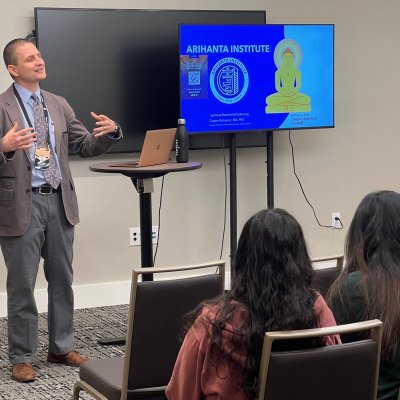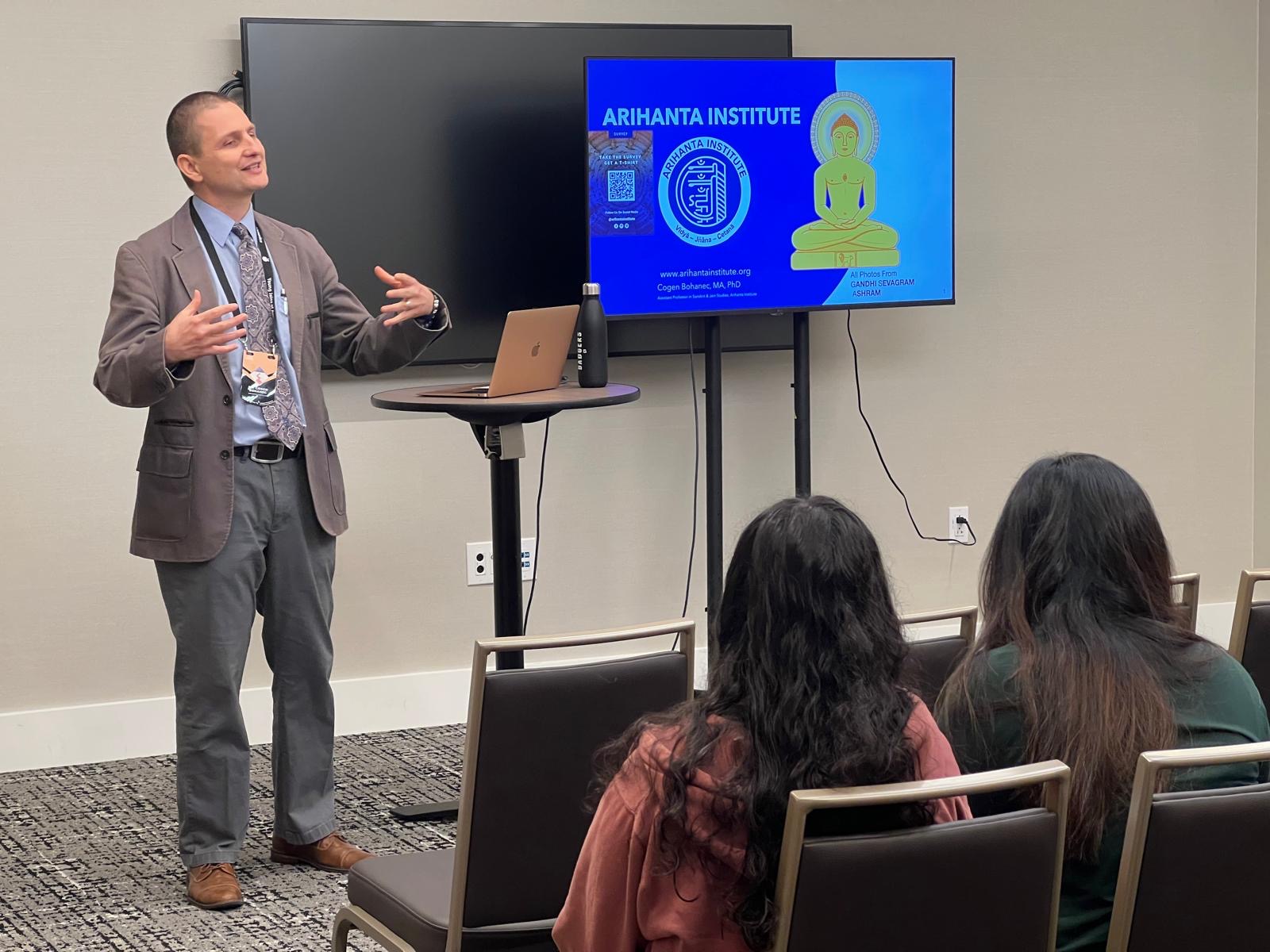My Experience at YJA, 2024

My Experience at YJA, 2024
My participation at the Young Jains of America (YJA) convention in July 2024, was my second time attending this event. I speak at numerous conventions and conferences throughout the year, but YJA is rather special. There is a palpable enthusiasm amongst the attendees, a sort of youthful excitement that is insightfully and expertly channeled by the leaders of the community into an educational, wholesome, and clearly enjoyable and fun event.
The convention itself seems to mimic an academic conference with multiple speakers, but also various other organized activities that range from primarily recreational and social to educational and intellectually stimulating, the latter category describing my own academic presentations. In my scholarship, I engage Jain teachings with other aspects of academic Jain studies, primarily related to issues of social justice, issues that are particularly germane to the younger generations who are the heirs to the rather dismal side effects of late-stage global capitalism.
I gave two presentations that foregrounded important social issues. The first was “Mahātmā Gandhi and the Three A’s of Jainism,” where I discussed the social relevance of Gandhi’s message for the world and u

nderscored his Jain influences and themes. The second talk was on “Jain Ecotheology,” which, as one might imagine, was a discourse on the application of
Jain teachings, largely textual, regarding preservation of the natural world in the face of our modern environmental crisis. These were both based on my academic publications.
There are two things that are my primary impressions of YJA. The first is how intellectually stimulating the YJA attendees are. It is no exaggeration to say that the level of engagement on the part of attendees with my lectures is far beyond any other events where I present. The participation of the audience, in terms of reflections and questions, is both engaging and intellectually evocative, and I’m constantly struck by how intelligent the attendees are. I was happily accosted after both talks by attendees of my lectures who eagerly wanted to discuss the topics further, and, for each talk, I remained for another hour engaging with these bright and inspired young minds. It is conversations like this that bring purpose to the lives of educators such as myself.
The second primary impression that strikes me about YJA is that it is something of an organizational marvel. On the one hand, the details are overwhelming—from rooms, to transportation, meals to scheduling, and everything in between, everything seems to run flawlessness. But perhaps even beyond that, it is so inspiring to see that all of this seems to be carried out by young people (and quite a few not-so-young people too) who are passionately dedicated to the cause of making the convention an incredible success. Any interactions that I had both in preparation for the convention and at the event itself were pleasant, with volunteers who seemed to be genuinely enjoying themselves, and who really seemed to love what they were doing. In short, everyone, even the staff of volunteers, seemed to be really happy and seemed to be having a great time.
_orig)
If I might add a third important impression—I commend the organizers for making the event all vegan, which, in my opinion, is a logical extension of the centrality of Jain ahiṃsā in the modern era. As a vegan, I’m often off-put by the willingness of religious communities to participate in violence against animals through unnecessary dietary choices that include animal products which seems discordant to the elements of nonviolence in their religious teachings.
It is hard to adequately express in words the success of this event; the inspiration, the enjoyment and fun, the camaraderie, the community building, and of course, the wholesome educational core of the event. This is a place where important socio-religious values are conveyed, accultured, and enhanced in a way that is not at all forced (like it seems to be in other religious functions that I have attended that are directed towards young people). At YJA, it seems to be fun to be a Jain, and the younger generation seem inspired by their camaraderie around their shared culture, their shared Jain values which are as relevant to the younger generation who is inheriting this broken world as they ever have been in the past. It gives one hope to be both a participant and an observer of such an important cultural function since cultural values largely fashion the status of our society, and in turn, humanity’s place in the world.
For more insights from YJA, read Professor Jonathan Dickstein's reflection, here.
Cogen Bohanec, MA, PhD currently holds the position of Assistant Professor in Sanskrit and Jain Studies at Arihanta Institute where he teaches various courses on Jain philosophy and its applications. He received his doctorate in Historical and Cultural Studies of Religion from the Graduate Theological Union (GTU) in Berkeley, California where his research emphasized comparative dharmic traditions and the philosophy of religion. He teaches several foundational self-paced, online courses based in Jain philosophy, yoga, ecology, languages, and interfaith peace-building, including:
- 2001 | Introduction to Jain Philosophy
- 3001 | Introduction to Jain Yoga
- 1007 | Peacebuilding & Interfaith Dialogue in the Jain Tradition
- 1010 | Toward a Jain Ecotheology
- 2010 | Research Sanskrit: Level 1
- 2012 | University Sanskrit 1 Live
